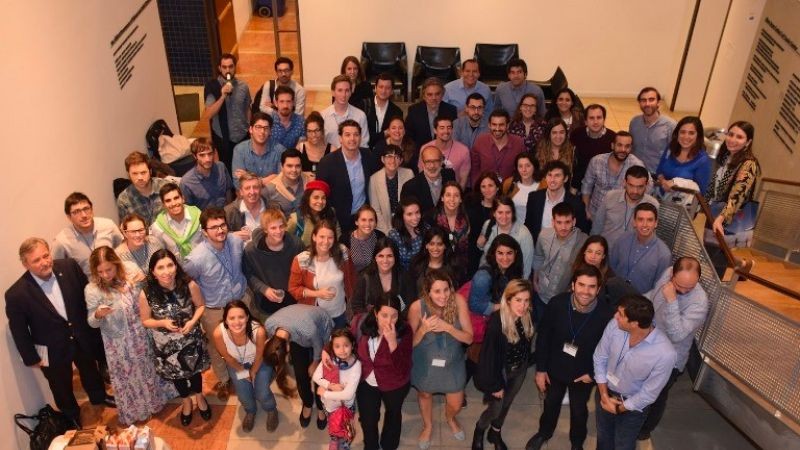On Campus: Discussion on Chile’s Public Policy Challenges

During a two-day gathering in New York, more than a hundred students, scholars, and researchers met to address the most pressing topics currently at the top of Chile’s public policy agenda. This annual event, in its fourth version, was hosted by Columbia and New York University (NYU) and sponsored by the Santiago Center. Besides discussion on several key political, economic and social issues, it included an exhibition section where Chilean students currently completing their degrees in US universities displayed their research and entrepreneurship projects.
The first day of the gathering, which took place at Columbia’s Low Library, begun with a speech by Juan Gabriel Valdés, Chile’s Ambassador to the US, who addressed the threats to democracy throughout the world explaining that Chile is not immune to them. His presentation was followed by a panel discussion entitled “The Road to a New Chilean Constitution", which featured Claudia Heiss from Universidad de Chile (a Columbia alumna that is part of the Santiago Center’s Advisory Board) and Patricio Zapata, renown constitutional lawyer. Andrew Arato, professor of Political and Social Theory in at the New School for Social Research, was in charge of commenting both presentations.
Questions from attendees addressed the crisis of political legitimacy that has unfolded in Chile in recent decades, resulting in a drastic decline in electoral participation and in an increase in distrust towards authorities. The Political Constitution, according to the panelists, plays an important role in this crisis of confidence, making the constitutional problem a key element in the challenge of strengthening democracy.
The second panel focused on pension reform and included presentations by economists Claudia Sanhueza and Salvador Valdés, who displayed conflicting positions regarding both the current system and the direction in which reform should go. Former Finance Minister Rodrigo Valdés closed the first day of meetings with a masterclass that highlighted the country's economic progress in recent years and portrayed an optimistic view of Chile’s development path.
The second day of the gathering took place at NYU. Gonzalo Arteaga, Andrés Morán and Eugenio Marcos presented their experiences on public-private partnerships in the mining sector. Then, a panel entitled "Reforming the Chilean School System," featured contrasting views on the end of the primary school selection and the enrollment systems from IADB expert Gregory Elacqua, Princeton scholar Christopher Neilson, and CEP researcher Sylvia Eyzaguirre.
There was also a panel discussion on immigration policy with presentations by experts Sonia Plaza, Miguel Yaksic and Alexandra Délano. Yaksic analyzed the challenges that Chile faces in light of the current new migratory wave, pointing out that it is vital that public policy decisions incorporate the view of the immigrant as a person with dignity and value in him/herself and not as a means for the development of the country or the economic contribution that he/she is able to make.
In the final panel, economists Claudia Martínez and Valentina Paredes analyzed the gender gaps in education and the labor market. The closing session was in charge of Universidad Católica’s Provost Ignacio Sanchez, who spoke on the current process of reform for higher education.